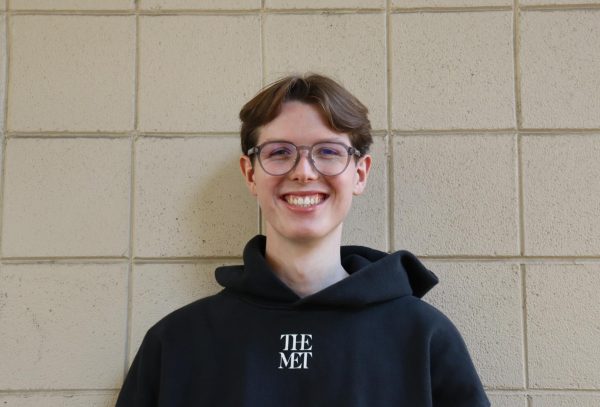From securing abortion rights to expanding gambling laws, seven propositions are on the ballot for California voters on Nov. 8. For some in the Class of 2023, the upcoming midterm is the first time they will be able to vote (to register to vote or check voter registration status, visit this link). Here are the pros and cons of those seven initiatives.
Proposition 1: Protects constitutional right to reproductive freedom (legislative constitutional amendment)
This proposition — introduced by Gov. Gavin Newsom, state senate president Toni Atkins and state assembly speaker Anthony Rendon — would amend the state’s constitution to prevent the state from interfering with or denying a person’s reproductive freedom. The term “reproductive freedom” includes both the right to contraceptives and abortion.
After the overturning of Roe v. Wade in June by the Supreme Court, abortion access in more than a dozen states has been threatened.
Supporters of this proposition believe that such medical decisions should be made between the patient and provider as opposed to the government. They also support equal and unrestricted access to reproductive health care.
Opponents argue that the money spent on abortions — especially with late-term abortions — should instead go to California schools and infrastructure.
The “yes” campaign has received key support from the National Health Law Program, Planned Parenthood affiliates of California, The American College of Obstetrics and Gynecology, the California Medical Association and others.
The “no” campaign is backed by the American Association of Pro-Life Obstetricians and Gynecologists, California Catholic Church, California Republican Party, Knights of Columbus, William Jessup University, Christian Medical and Dentist Association, The International Faith-Based Coalition and many others.
Proposition 26: Allows in-person roulette, dice games and sports wagering on tribal lands (initiative constitutional amendment and statute)
If passed, this proposition would legalize roulette and dice games at casinos on Indian land, legalize sports betting at casinos on Indian land and at licensed racetracks, as well as generate 10% tax profits from sports betting, in turn providing the state with additional millions in funding.
Supporters of Proposition 26 argue that allowing tribal casinos to host sports betting would increase jobs and generate more revenue for tribal education and health care, while also increasing state revenues by tens of millions annually.
Opponents say Proposition 26 would increase animal abuse by expanding gambling to horse tracks and also give five dominant tribes a monopoly over gambling to exploit employees for labor. While legalizing in-person sports betting at casinos and licensed race tracks would help direct a larger portion of the gambling cash flow toward the government and help support the livelihood of tribes, it also introduces potential and current gambling addicts to a wider and more dangerous range of ways to go into debt.
The “yes” campaign is supported by 27 of the state’s Native American tribes. All casinos in the state are owned and operated by tribes, and the majority of casino-owning tribes support Proposition 26.
The “no” campaign is backed by veteran and public safety groups, animal welfare groups, small business organizations, labor organizations and more. This includes the Association of the United States Army of Northern California, California Animal Welfare Association and Small Business California.
Proposition 27: Allows online and mobile sports wagering outside tribal lands (initiative constitutional amendment and statute)
Similar to Proposition 26, Proposition 27 would legalize online sports betting for people age 21 and older. The proposition would generate a 10% tax profit from revenues and licensing fees, which would then be dedicated to other causes: Homelessness programs would receive 85% of this funding, and 15% would go to supporting the Tribal Economic Development Account.
Supporters argue that the increase in funding will reduce homelessness numbers and create a permanent monetary source for all California tribes.
Opponents say the proposition will increase underage gambling. They also believe that the majority of funds gained through online sports betting will go to out-of-state companies as opposed to helping tribes.
For Proposition 27, major supporters include online sports betting companies such as Betfair, Draftkings, BetMGM and Penn National Gaming Inc. These four companies make up over 70% of the campaign funding.
Opponents of the proposition include more than 50 of California’s Native American tribes — as the Proposition requires them to give up sovereignty to qualify for an online sports betting license — and California’s Teachers Association, arguing that online betting platforms lack protection for minors and that because mobile gambling is more addictive than in-person gambling, the proposition provides fuel for addictions.
Proposition 26 and 27 clarifications
It is important to note that while Proposition 26 only legalizes in-person sports betting at Native American Casinos and three authorized racetracks in the state, Proposition 27 allows sports betting to occur anywhere, and allows gambling to be available on any electronic device.
Further, both propositions are completely independent of each other — for instance, if Proposition 27 passed and Proposition 26 failed, online sports betting would be legalized, but in-person sports betting would still be illegal.
Proposition 28: Provides additional funding for arts and music education and public schools (initiative statute)
The proposition would require K-12 education programs to allocate at least 1 percent of the total state and local revenues they receive under Proposition 28 to art and music programs.
The district is funded under the basic aid program, unlike most other California school districts, meaning the school is primarily funded by local property taxes rather than the state’s average daily attendance funding formula. The school currently spends a “minimal amount,” according to music director Michael Boitz, but if Proposition 28 was passed, the amount of funding for art and music programs would rely less heavily on booster support and both programs would be able to grow.
A “yes” vote on this would require all K-12 public schools funding for arts and music to be at least one percent of the total state and local revenues. The proposition would require at least 1% of the funding under Proposition 98 — money guaranteed to schools in the state budget — be allocated for music and art funding.
In addition, schools with over 500 students would require 80% of the allocated funding to be used for employing teachers and 20% for training and materials in the arts and music departments. This proposition will also require a report to be published on how the money is spent.
Supporters argue that this increase in funding will ensure arts and music education in public schools while ensuring accountability to administrations by requiring them to use at least 1% of funding for these opportunities.
There is currently no official known campaign opposing this proposition.
The “yes” campaign has been endorsed by The Los Angeles Unified School District and the California Teachers Association (California Teachers Union).
Proposition 29: Requires on-site licensed medical professional at kidney dialysis clinics and establishes other state requirements (initiative statute)
This proposition would require dialysis clinics to have either a Physician, Nurse Practitioner (NP) or Physician Assistant (PA) present at a clinic while patients are being treated. It would also require them to report data on dialysis-related infections to the state and not discriminate based on a patient’s source of payment. In 2018 and 2020, similar propositions failed with an overwhelming defeat.
Dialysis, a medical procedure that removes waste products from the body when a person’s kidneys do not function properly, is a key part of the lives of over 80,000 Californians. Some experts suggest that the price of dialysis treatment may rise, adversely affecting patients, as a result of the increased requirements to employ more physicians.
Supporters argue that dialysis technicians are overworked and requiring physicians onsite would reduce some of the burden, as well as increase transparency for clinics.
Opponents say passing this proposition could hinder existing treatment options. They argue the proposition will force more than half of the state’s dialysis clinics to cut back on services or shut down.
The “yes” campaign is backed by the California Democratic Party and California Labor Federation.
The “no” campaign consists of organizations such as the California Medical Association, the American College of Surgeons, the Renal Healthcare Association and the American Nurses Association of California. It is important to note that two corporations — Davita Inc. and Fresenius Medical care, which combined, own and operate nearly 75% of dialysis clinics in the state — have bankrolled a significant amount for the “no” campaign.
Proposition 30: Provides Funding for Programs to Reduce Greenhouse Gas Emissions by Increasing Tax on Personal Income Over $2 Million (initiative statute)
Prop 30 will increase taxation on the top 1% of Californians by 1.75% to raise funds to combat climate change. The revenue will be dedicated to “zero emission vehicles” and infrastructure.
This funding would be placed into the Clean Cars and Clean Air Trust Fund (CCATF) and then be allocated to three sub-funds: Zero-Emission Vehicle Infrastructure Investment Plan, Zero-Emission Vehicle and Clean Mobility Sub-fund and the Wildfire Green House Gas Emissions Reduction sub-funds. These funds would aid the state in building charging stations and electric car infrastructure, and in hiring and training firefighters.
Supporters argue that we need to act as soon as possible to reduce air pollution from vehicles, which in turn will reduce California’s increasing number of wildfires.
Opponents believe that the funding will allow companies to build or fund electric vehicle initiatives through taxpayers’ money rather than work towards decreasing air pollution levels.
The “yes” campaign has received key support from Lyft and the Democratic Party of California.
The “no” campaign has received key endorsements from public officials such as Newsom, who said in a press conference that “[Lyft is] taking advantage of [Californians], hundreds of millions of dollars a week they’re putting in their pockets, lining their pockets at your expense, and then polluting this planet.”
Proposition 31: Prohibiting the retail sale of certain flavored tobacco products (referendum)
Proposition 31 would uphold the CA Senate Bill 793, which banned flavored tobacco products from being sold. SB 793 was passed in 2020 without much opposition in the state Assembly.
Supporters argue that the sale of flavored tobacco products is directed toward youth — especially people of color, citing the use of flavored products as a “gateway drug” for youth to develop lasting nicotine addictions. This stance is largely supported by research, with studies indicating that four out of five teenagers who regularly use tobacco began with a flavored product.
Supporters have also called the sale of flavored vape products a direct assault on Black communities, citing the widespread push of minty menthol cigarettes in these communities over the past few decades.
Opponents argue that it is already illegal to sell tobacco products to people under the age of 21 — implying that these flavors are not marketed to children’s tastes and preferences — so the ban is an unnecessary prohibition for those aged 21 and older. Additionally, the “vote no on prop 31” website details that youth vaping percentages have already gone down and are at an all-time low.
The “yes” campaign is backed by Newsom as well as the CTA.
The “no” campaign has received endorsements from large tobacco companies and the Californian Republican Party.




























